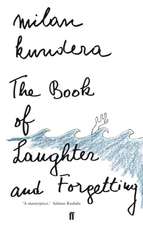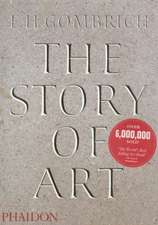Symposium
Autor Platoen Limba Engleză Paperback – 30 sep 2008
| Toate formatele și edițiile | Preț | Express |
|---|---|---|
| Paperback (37) | 40.77 lei 21-33 zile | +12.33 lei 6-12 zile |
| Hackett Publishing Company – mai 1989 | 65.88 lei 24 ore | |
| Penguin Books – 24 aug 2005 | 40.77 lei 21-33 zile | +12.33 lei 6-12 zile |
| CREATESPACE – | 42.56 lei 3-5 săpt. | |
| CREATESPACE – | 44.54 lei 3-5 săpt. | |
| – | 44.95 lei 3-5 săpt. | |
| CreateSpace Independent Publishing Platform – | 45.59 lei 3-5 săpt. | |
| CREATESPACE – | 45.77 lei 3-5 săpt. | |
| CREATESPACE – | 46.00 lei 3-5 săpt. | |
| – | 46.18 lei 3-5 săpt. | |
| CreateSpace Independent Publishing Platform – | 46.59 lei 3-5 săpt. | |
| OUP OXFORD – 11 sep 2008 | 48.60 lei 3-5 săpt. | +19.54 lei 6-12 zile |
| – | 48.74 lei 3-5 săpt. | |
| CREATESPACE – | 49.55 lei 3-5 săpt. | |
| Penguin Books – 26 feb 2003 | 51.19 lei 21-33 zile | +15.76 lei 6-12 zile |
| – | 52.98 lei 3-5 săpt. | |
| CREATESPACE – | 56.25 lei 3-5 săpt. | |
| CreateSpace Independent Publishing Platform – | 72.07 lei 3-5 săpt. | |
| CREATESPACE – | 83.77 lei 3-5 săpt. | |
| Focus Publishing/R Pullins & Co – 31 dec 1997 | 85.01 lei 3-5 săpt. | |
| Hackett Publishing Company – 30 dec 1985 | 99.25 lei 3-5 săpt. | |
| Lulu.Com – 14 dec 2016 | 50.82 lei 6-8 săpt. | |
| – | 59.98 lei 6-8 săpt. | |
| NuVision Publications – 6 aug 2007 | 60.78 lei 38-45 zile | |
| Echo Library – 30 sep 2006 | 64.29 lei 38-45 zile | |
| – | 64.62 lei 6-8 săpt. | |
| – | 66.91 lei 6-8 săpt. | |
| Lulu.Com – 18 iul 2020 | 69.51 lei 6-8 săpt. | |
| Akasha Classics – 11 noi 2009 | 71.04 lei 6-8 săpt. | |
| Weyland Easterbrook – 19 mai 2020 | 73.29 lei 38-45 zile | |
| Binker North – 24 iun 2023 | 75.41 lei 6-8 săpt. | |
| Blurb – 22 oct 2021 | 75.80 lei 6-8 săpt. | |
| Book Jungle – 3 feb 2010 | 83.19 lei 6-8 săpt. | |
| Lulu – 23 iul 2013 | 86.63 lei 6-8 săpt. | |
| 1st World Publishing – 30 sep 2008 | 94.62 lei 6-8 săpt. | |
| Lulu – 7 feb 2016 | 115.21 lei 38-45 zile | |
| Penguin Books – 30 apr 2006 | 125.75 lei 6-8 săpt. | |
| TREDITION CLASSICS – 31 oct 2011 | 129.97 lei 6-8 săpt. | |
| Hardback (8) | 124.75 lei 6-8 săpt. | |
| Hackett Publishing Company – 30 apr 1989 | 236.18 lei 3-5 săpt. | |
| Lits – 30 noi 2010 | 124.75 lei 6-8 săpt. | |
| – | 157.65 lei 6-8 săpt. | |
| Lulu.Com – 19 iul 2020 | 158.64 lei 6-8 săpt. | |
| Akasha Classics – 11 noi 2009 | 159.05 lei 6-8 săpt. | |
| Weyland Easterbrook – 19 mai 2020 | 164.84 lei 38-45 zile | |
| Blurb – 22 mar 2023 | 188.96 lei 6-8 săpt. | |
| Lulu – 7 feb 2016 | 189.60 lei 6-8 săpt. |
Preț: 94.62 lei
Nou
Puncte Express: 142
Preț estimativ în valută:
18.11€ • 18.88$ • 15.05£
18.11€ • 18.88$ • 15.05£
Carte tipărită la comandă
Livrare economică 21 martie-04 aprilie
Preluare comenzi: 021 569.72.76
Specificații
ISBN-13: 9781421893921
ISBN-10: 1421893924
Pagini: 112
Dimensiuni: 140 x 216 x 7 mm
Greutate: 0.15 kg
Editura: 1st World Publishing
Locul publicării:United States
ISBN-10: 1421893924
Pagini: 112
Dimensiuni: 140 x 216 x 7 mm
Greutate: 0.15 kg
Editura: 1st World Publishing
Locul publicării:United States
Notă biografică
Plato was an ancient Greek philosopher born in Athens during the Classical period in Ancient Greece. In Athens, Plato founded the Academy, a philosophical school where he taught the philosophical doctrines that would later become known as Platonism. Plato (or Platon) was a pen name derived, apparently, from the nickname given to him by his wrestling coach - allegedly a reference to his physical broadness. According to Alexander of Miletus quoted by Diogenes of Sinope his actual name was Aristocles, son of Ariston, of the deme Collytus (Collytus being a district of Athens).Plato was an innovator of the written dialogue and dialectic forms in philosophy. He raised problems for what later became all the major areas of both theoretical philosophy and practical philosophy. His most famous contribution is the Theory of forms, which has been interpreted as advancing a solution to what is now known as the problem of universals. He is also the namesake of Platonic love and the Platonic solids.His own most decisive philosophical influences are usually thought to have been, along with Socrates, the pre-Socratics Pythagoras, Heraclitus, and Parmenides, although few of his predecessors' works remain extant and much of what we know about these figures today derives from Plato himself.[a]Along with his teacher, Socrates, and his student, Aristotle, Plato is a central figure in the history of philosophy.[b] Unlike the work of nearly all of his contemporaries, Plato's entire body of work is believed to have survived intact for over 2,400 years.[6] Although their popularity has fluctuated, Plato's works have consistently been read and studied. Through Neoplatonism Plato also greatly influenced both Christian and Islamic philosophy (through e.g. Al-Farabi). In modern times, Alfred North Whitehead famously said: "the safest general characterization of the European philosophical tradition is that it consists of a series of footnotes to Plato.
Recenzii
The Symposium challenges the translator who is also a poet in its range of styles which is unique among the Platonic dialogues. Not only dues the translator have to mimic the distinct style of the narrator, Apollodoros, and the seven symposiasts...he has to mind and represent the action in this the most dramatic of the Platonic dialogues. Sharon's translation meets these challenges and is a brilliant recovery of the style and drama of the Symposium. I know of no other translation that is so appropriately various in the styles adopted by and for the speakers or which is so attentive to the drama of this dialogue which celebrates a tragic victory. -- Diskin Clay, Duke University
Descriere
Descriere de la o altă ediție sau format:
In his celebrated masterpiece, Symposium, Plato imagines a high-society dinner-party in Athens in 416 BC at which the guests - including the comic poet Aristophanes and, of course, Plato's mentor Socrates - each deliver a short speech in praise of love. The sequence of dazzling speeches culminates in Socrates' famous account of the views of Diotima, a prophetess who taught him that love is our means of trying to attain goodness. And then into the party bursts the drunken Alcibiades, the most popular and notorious Athenian of the time, who insists on praising Socrates himself rather than love, and gives us a brilliant sketch of this enigmatic character.The power, humour, and pathos of Plato's creation engages the reader on every page. This new translation is complemented by full explanatory notes and an illuminating introduction. ABOUT THE SERIES: For over 100 years Oxford World's Classics has made available the widest range of literature from around the globe. Each affordable volume reflects Oxford's commitment to scholarship, providing the most accurate text plus a wealth of other valuable features, including expert introductions by leading authorities, helpful notes to clarify the text, up-to-date bibliographies for further study, and much more.
In his celebrated masterpiece, Symposium, Plato imagines a high-society dinner-party in Athens in 416 BC at which the guests - including the comic poet Aristophanes and, of course, Plato's mentor Socrates - each deliver a short speech in praise of love. The sequence of dazzling speeches culminates in Socrates' famous account of the views of Diotima, a prophetess who taught him that love is our means of trying to attain goodness. And then into the party bursts the drunken Alcibiades, the most popular and notorious Athenian of the time, who insists on praising Socrates himself rather than love, and gives us a brilliant sketch of this enigmatic character.The power, humour, and pathos of Plato's creation engages the reader on every page. This new translation is complemented by full explanatory notes and an illuminating introduction. ABOUT THE SERIES: For over 100 years Oxford World's Classics has made available the widest range of literature from around the globe. Each affordable volume reflects Oxford's commitment to scholarship, providing the most accurate text plus a wealth of other valuable features, including expert introductions by leading authorities, helpful notes to clarify the text, up-to-date bibliographies for further study, and much more.
Cuprins
The SymposiumPreface
Introduction
Introduction
The Symposium
Notes
Select Bibliography
























